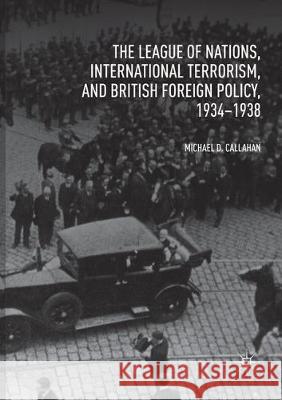The League of Nations, International Terrorism, and British Foreign Policy, 1934-1938 » książka
topmenu
The League of Nations, International Terrorism, and British Foreign Policy, 1934-1938
ISBN-13: 9783030083977 / Angielski / Miękka / 2018 / 317 str.
The League of Nations, International Terrorism, and British Foreign Policy, 1934-1938
ISBN-13: 9783030083977 / Angielski / Miękka / 2018 / 317 str.
cena 322,77 zł
(netto: 307,40 VAT: 5%)
Najniższa cena z 30 dni: 308,41 zł
(netto: 307,40 VAT: 5%)
Najniższa cena z 30 dni: 308,41 zł
Termin realizacji zamówienia:
ok. 22 dni roboczych
Bez gwarancji dostawy przed świętami
ok. 22 dni roboczych
Bez gwarancji dostawy przed świętami
Darmowa dostawa!
Kategorie BISAC:
Wydawca:
Palgrave MacMillan
Język:
Angielski
ISBN-13:
9783030083977
Rok wydania:
2018
Dostępne języki:
Ilość stron:
317
Waga:
0.36 kg
Wymiary:
21.08 x 21.08 x 1.52
Oprawa:
Miękka











